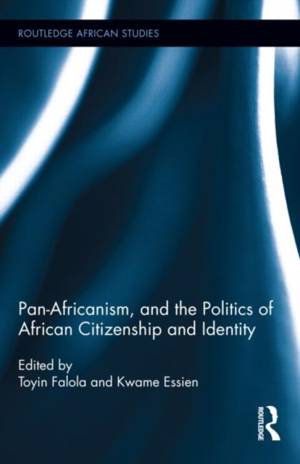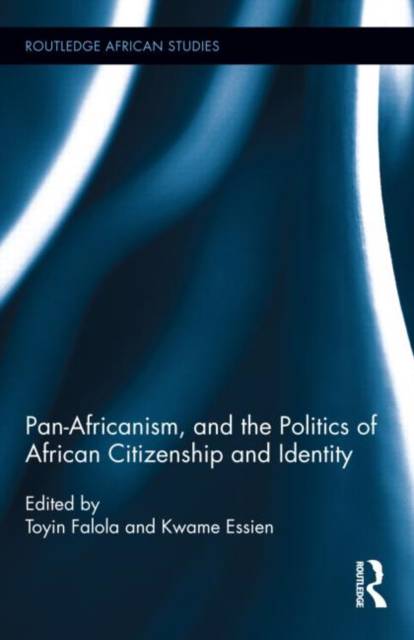
- Afhalen na 1 uur in een winkel met voorraad
- Gratis thuislevering in België vanaf € 30
- Ruim aanbod met 7 miljoen producten
- Afhalen na 1 uur in een winkel met voorraad
- Gratis thuislevering in België vanaf € 30
- Ruim aanbod met 7 miljoen producten
Pan-Africanism, and the Politics of African Citizenship and Identity
Omschrijving
There is no recent literature that underscores the transition from Pan-Africanism to Diaspora discourse. This book examines the gradual shift and four major transformations in the study of Pan-Africanism. It offers an "academic post-mortem" that seeks to gauge the extent to which Pan-Africanism overlaps with the study of the African Diaspora and reverse migrations; how Diaspora studies has penetrated various disciplines while Pan-Africanism is located on the periphery of the field. The book argues that the gradual shift from Pan-African discourses has created a new pathway for engaging Pan-African ideology from academic and social perspectives. Also, the book raises questions about the recent political waves that have swept across North Africa and their implications to the study of twenty-first century Pan-African solidarity on the African continent. The ways in which African institutions are attracting and mobilizing returnees and Pan-Africanists with incentives as dual-citizenship for diasporans to support reforms in Africa offers a new alternative approach for exploring Pan-African ideology in the twenty-first century. Returnees are also using these incentives to gain economic and cultural advantage. The book will appeal to policy makers, government institutions, research libraries, undergraduate and graduate students, and scholars from many different disciplines.
Specificaties
Betrokkenen
- Uitgeverij:
Inhoud
- Aantal bladzijden:
- 266
- Taal:
- Engels
- Reeks:
- Reeksnummer:
- nr. 11
Eigenschappen
- Productcode (EAN):
- 9780415836296
- Verschijningsdatum:
- 3/10/2013
- Uitvoering:
- Hardcover
- Formaat:
- Genaaid
- Afmetingen:
- 152 mm x 234 mm
- Gewicht:
- 498 g

Alleen bij Standaard Boekhandel
Beoordelingen
We publiceren alleen reviews die voldoen aan de voorwaarden voor reviews. Bekijk onze voorwaarden voor reviews.










